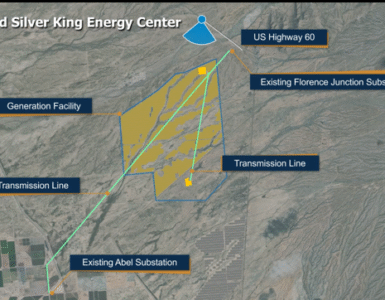This op-ed was originally published in the Arizona Republic on 4/28/2020 here.
Gov. Doug Ducey’s decision to let elective surgical procedures can resume on May 1 is an important step on the path to reopening big portions of the Arizona economy from its coronavirus-induced coma.
The state’s business community, which is comprised of innovative, creative thinkers who are leading enterprises large and small, is ready to work with public health officials to adopt policies and procedures that will allow for an even broader reopening of the Arizona economy, safely.
On an April 16 conference call with business leaders, the governor solicited ideas for the reopening. The Arizona Chamber of Commerce & Industry, along with more than 150 other entities, have since provided input.
The governor wisely makes clear that he’ll rely on CDC protocols and Arizona public health data to drive decision-making.
Data such as the number of hospitalizations, new cases, available ICU beds and ventilators are the key benchmarks. The rapid scale-up of diagnostic and contact tracing and antibody testing is critical to our efforts to contain the virus and reopen greater swaths of the economy.
1. Businesses need flexibility
Flexibility is key. Not all employers are the same, so not all guidelines for a reopening should be the same.
Certain types of small businesses might rarely have large numbers of people congregating in one place and can reopen soon, while businesses that engage in face-to-face customer interactions will need to implement appointment-based transactions to limit foot traffic, or can alter their hours to limit interactions throughout the workday.
Industries in close-contact fields like cosmetology, which already must meet rigorous public health standards, will need to develop options to serve their customers in new ways, increasing sanitization measures and utilizing personal protective equipment to protect employees and customers.
Sectors that have been walloped by the pandemic are pivoting to serve a new type of customer. Hotels, for example, are giving health-care workers and first responders a place for some needed rest without the worry of exposing loved ones to the virus at home. As contact tracing programs grow, hotels can host those who need to be quarantined, too.
Meanwhile, businesses that have shifted their workforces to telework should continue those arrangements for the foreseeable future, particularly for workers most at risk.
As certain essential service providers like grocery stores and restaurants delivering takeout have already demonstrated, businesses can be counted on to be nimble, meeting customer needs while still adhering to CDC guidelines. Government should be nimble, too, relying first on industry best practices before rigid mandates.
2. Businesses need protection
Liquidity is key. Businesses need every dime right now to keep their operations afloat, so, where possible, governments should delay things like sales tax remittances and property tax payments, and eliminate penalties for businesses that need forbearance. Our congressional delegation must ensure that financial lifeboats like the Paycheck Protection Program have adequate funding.
We should also reduce job creators’ exposure to legal liability.
Governor Ducey took the right approach through an executive order in providing “Good Samaritan” protections to Arizona’s health care workers and medical facilities on the frontlines of combating COVID-19.
Similar protections should be extended to businesses that take all proper steps in accordance with state and federal guidelines to stop the transmission of the virus among employees and customers.
If employers are hesitant to reopen out of fear of inviting a potential lawsuit, then Arizona’s economic recovery will be delayed.
The governor and his entire team throughout this ordeal have demonstrated that prudence does not have to mean paralysis.
It may not feel like it, but a majority of the economy has remained open as we have slowed the spread of the disease. The governor’s declaration of essential services and activities was among the most comprehensive in the country and became a national model, ensuring continuity in sectors as varied as manufacturing to telecommunications to construction.
We are confident that Arizona will exit this pandemic how we entered it: with the nation’s strongest economy.
Glenn Hamer is president and CEO of the Arizona Chamber of Commerce and Industry. Twitter: @GlennHamer.
















Add comment